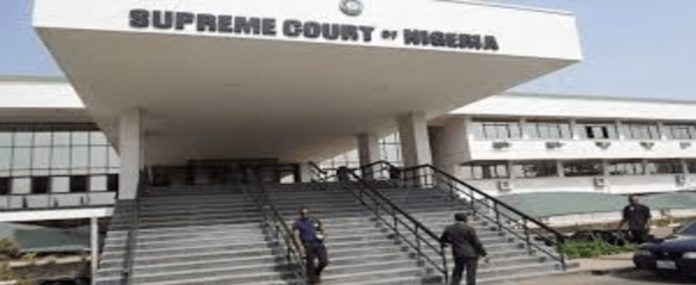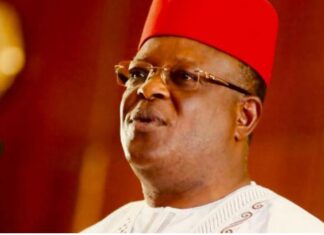The Nigerian judiciary is on trial. In the earlier trial of the judiciary, the PEPC rendered a ruling on itself.
By Tochukwu Ezukanma
Usually, any country, with any hope of redemption, has three bastions of incorruptibility: the academia, clergy and judiciary. Over the years, we came to the depressing and tear-jerking realization that our universities, and the Church have deteriorated to cesspools of sleaze and moral squalor. For long, despite the susurrations of grime and corruption in the judiciary, we held out hope that the judiciary could still be trusted as an impartial arbiter. Lamentably, the judiciary, the Presidential Election Petition Court (PEPC), outraged Nigerians with its verdict on the presidential election of February 25th, 2023. That verdict was a travesty of justice; it besmirched the reputation of the Nigerian judiciary.
Refreshingly, the petitioners, Peter Obi of the Labor Party (LP) and Atiku Abubakar of the Peoples Democratic Party (PDP) have appealed to the Supreme Court. I am not a lawyer, and, as an unlearned gentleman, I am not informed enough on the arcane of the law to speculate on the possible ruling of the Supreme Court on their appeals. Secondly, I am not clairvoyant, and I lack prophetic powers. Therefore, I cannot prophesize on the outcome of the appeals. However, it is extremely important that the petitioners are staying the course and continuing their quests for justice to the Supreme Court.
READ ALSO:
Tinubu – CSU certificate issue and Nigeria’s value system
To many Nigerians, the appeal to the Supreme Court is a foolhardy, futile and wasteful enterprise. Well, I am buoyed by Jesse Jackson’s earlier remark, “If you run, you might lose, but if you do not run, you are guaranteed to lose”. In going to the Supreme Court, they might lose, but, if they do not go, they are guaranteed to lose. Secondly, in the words of a onetime American senator and presidential candidate, Barry Goldwater, “Extremism in defense of liberty is no vice”. Similarly, extremism in pursuit of justice is not a vice. It is from such courageous, determined stances against injustice that democracy is buttressed, the rights and freedom of the people nourished and their political consciousness re-awakened. Undoubtedly, the seeds being sown by the petitioners’ relentless search for justice will germinate, and years later, bloom, and through its many branches reinforce the rule of law and the institutional moorings of democracy in Nigeria.
In addition, what is at stake in the judicial proceedings is more than the victory or defeat of one presidential candidate, as determined by the Supreme Court judges, but a verdict on the Nigerian Supreme Court. The Nigerian judiciary is on trial. In the earlier trial of the judiciary, the PEPC rendered a ruling on itself. Its ruling was that despite the import, weightiness and gravitas of the office of the judge, Nigerian judges are prone to the same characteristic Nigerian tendencies of corruption, avarice and abuse of office.
Judges, especially, Supreme Court judges, are the final arbiters of all human affairs (on earth), including life and death. Therefore, the office of the judge is inimitable, for very few other public officers have such crucial and conclusive authority over human affairs. Thus, the judges should be governed by the most elevated moral and ethical standards, humanly possible. As they deliver their verdict on the Presidential Election Petition, the Supreme Court will put itself on trial and give a verdict on itself. It can, based on the unvarnished evidence before it, restore the stolen mandate to the victor of the February 25th, 2003 presidential election, Peter Obi.
And that will be magnificent for Nigeria. That judgment will be lapidary; it will engrave the names of the judges in honor and glory in the stone of time. It will be a potent proof that in the vast scene of confusion that is our beloved country, and in the upside-down world of Nigeria, there is still a beacon of hope. It will demonstrate that in the pervading, encompassing anarchy, institutional dysfunction and moral and ethical collapse this country, there is still one bastion of incorruptibility in Nigeria. It will burnish the country’s badly tarnished international image. It will be a watershed, marking the first step in a national Renaissance.
After all, why would judges dispense with all judicial principles and standards; and grossly distort the constitution and Electoral Act to suit a predetermined verdict? That parody of justice proved that the judiciary, like every other Nigerian institutions, is susceptible to the sirens of life, especially money. A replication of the mockery of justice by the Appeal Court at the Supreme Court will mean that justice in Nigeria has finally gone to the dogs, and that the judges, even the Supreme Court judges, have been reduced to hustlers, who, in their bazaar mentality, can pander to even the most atrocious agenda of any highest bidder.
It will mean that the Supreme Arbiters of Nigeria have abandoned the essence of their oath of office, which is striving for the greatest good, and embraced the greatest evil. For in the words of the ancient Greek philosopher, Plato, “…justice is the greatest good and injustice the greatest evil”. It will be a complete moral and ethical disaster for the country; and presage the total loss of our sense of outrage. In the words of a onetime American senator, Daniel Moynihan, “Any nation that has lost its sense of outrage, is destined for extension”.
Tochukwu Ezukanma writes from Lagos, Nigeria.
maciln18@yahoo.com
0803 529 2908











